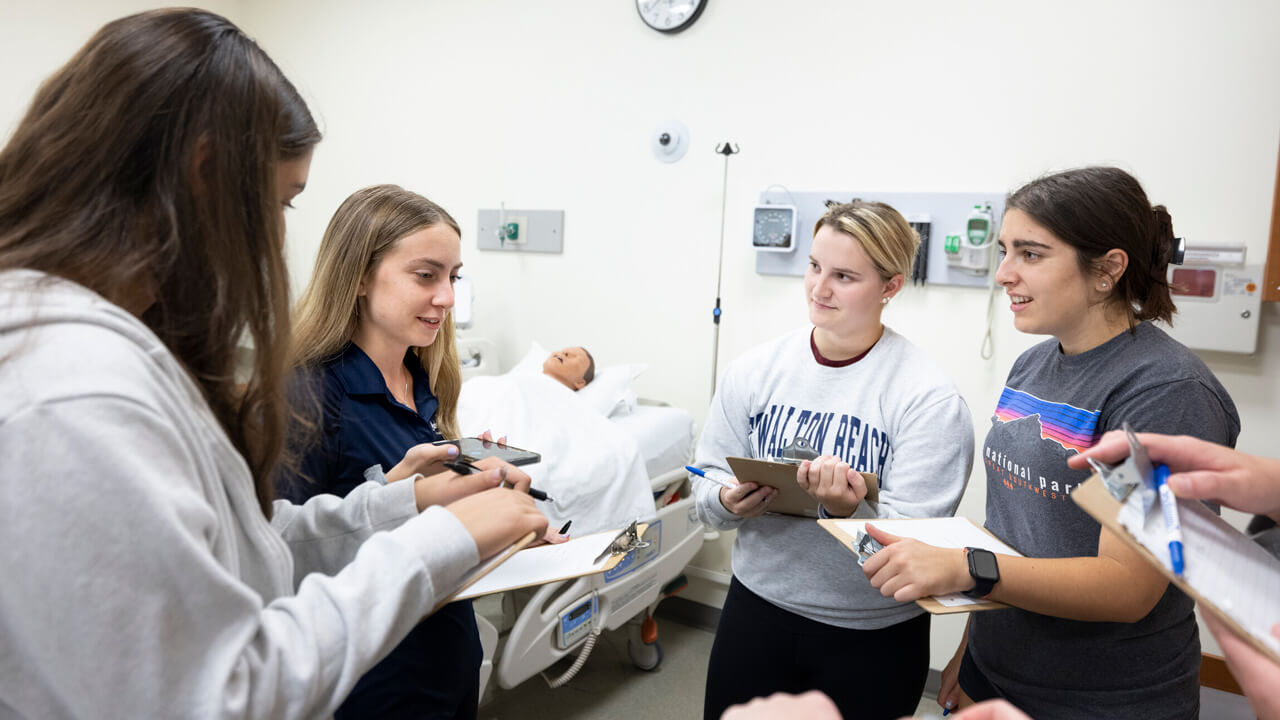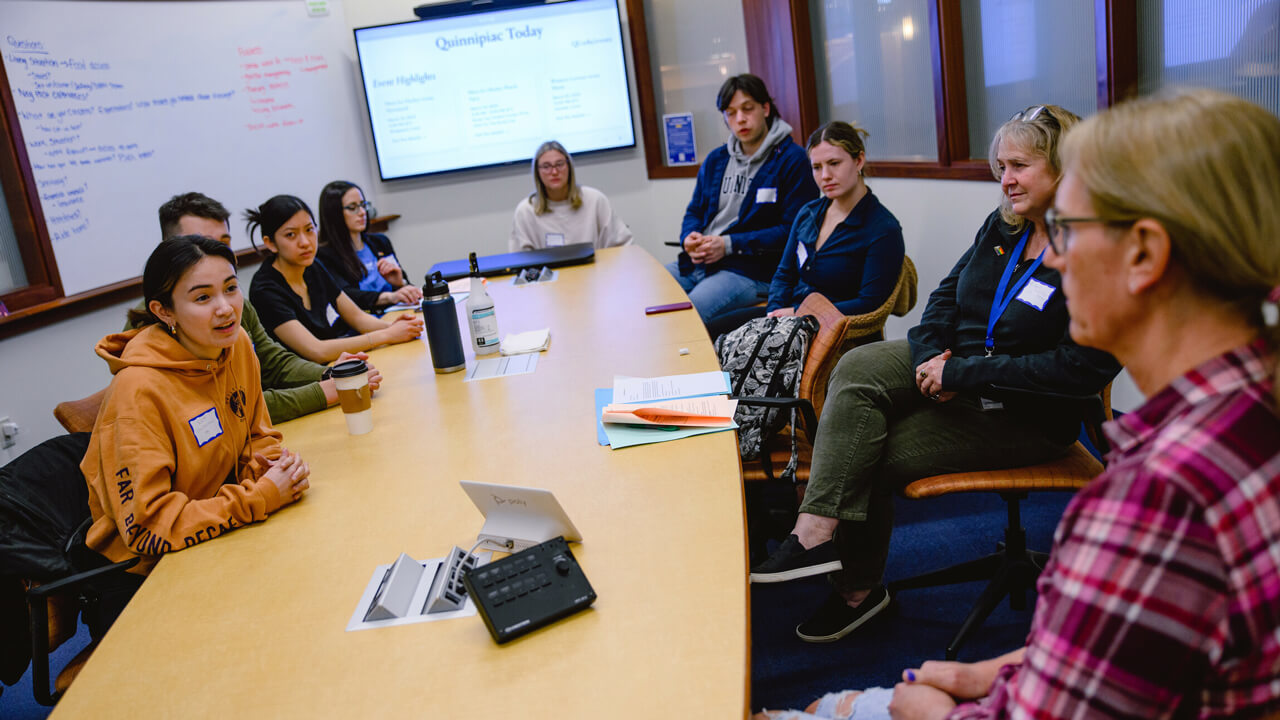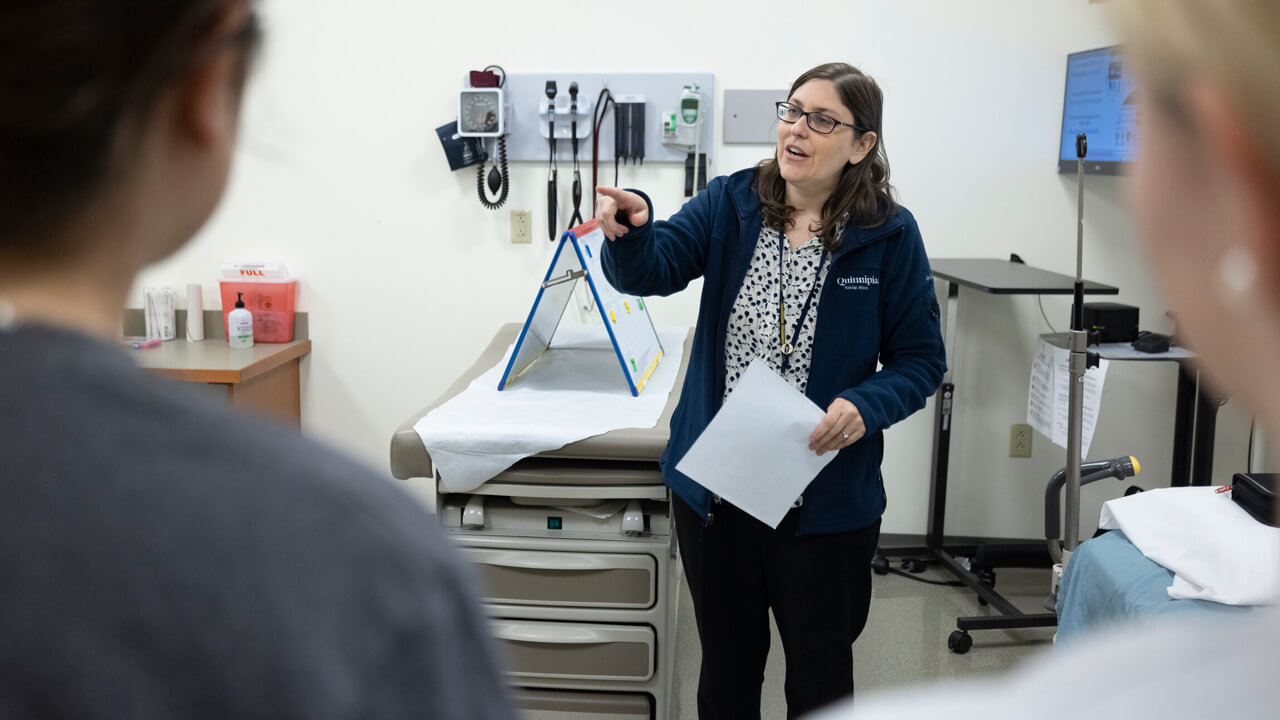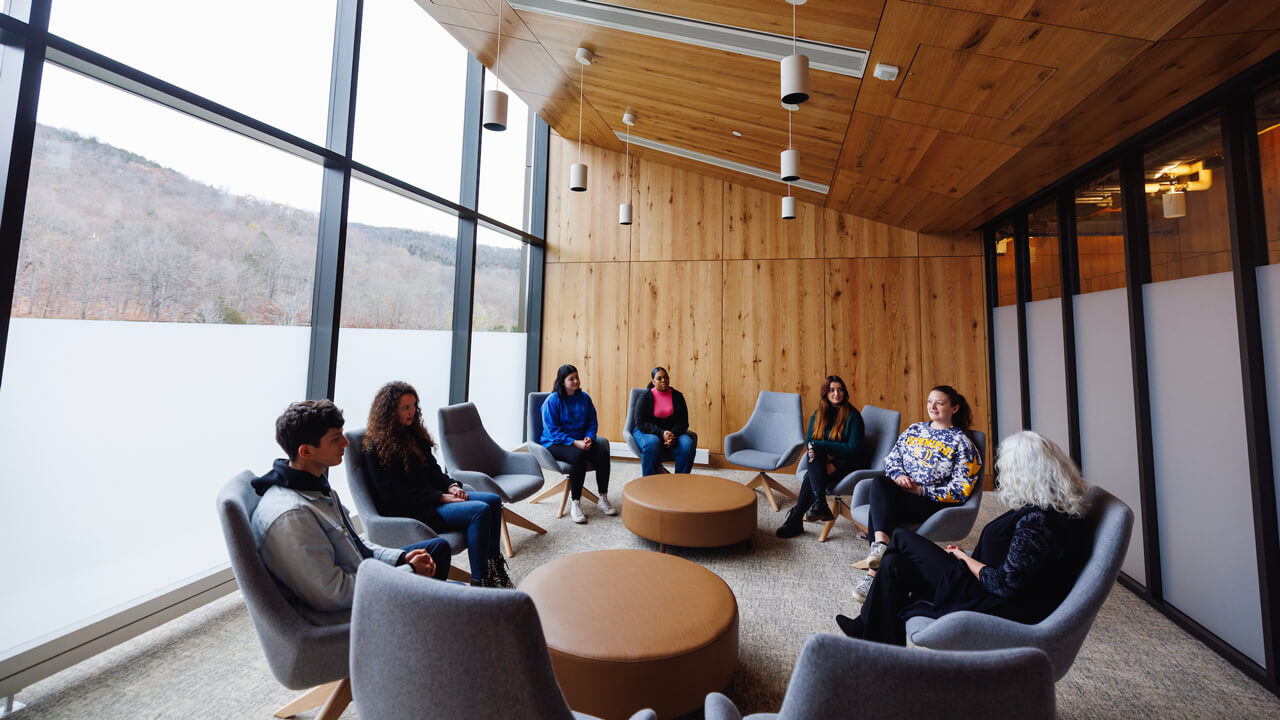Students in the on-ground social work program engage in simulation-based learning in multiple practice courses as well as clinical assessment and diagnosis coursework at the Standardized Patient and Assessment Center.
In their first foundational practice course, students work with two standardized patients throughout the semester – one participating virtually to simulate telehealth, and the other joining in person. This allows students to observe and practice the helping process from start to finish, focusing on skills of engagement, assessment, intervention and termination.
In the clinical assessment and diagnosis course, standardized patients are regularly integrated into the classroom to promote the development of advanced assessment and diagnostic skills. Similarly, in the advanced clinical practice course, students work with standardized patients to refine their advanced intervention skills. These simulation experiences provide valuable opportunities to build knowledge, skills and confidence, helping students feel more prepared for client interactions in clinical settings.
In addition to classroom simulation-based learning opportunities, students participate in Observed Structured Clinical Examinations (OSCEs) at three points across the graduate curriculum. These practical examinations, conducted with standardized patients simulating real-world interactions, allow students to showcase their client engagement, assessment, diagnosis and intervention skills. Students review their videos with their internship site supervisors, allowing them to demonstrate competence that can be integrated into concurrent clinical experiences.
Students in our online social work program use a virtual simulation program with cutting-edge artificial intelligence to provide real-time feedback in authentic client scenarios.





